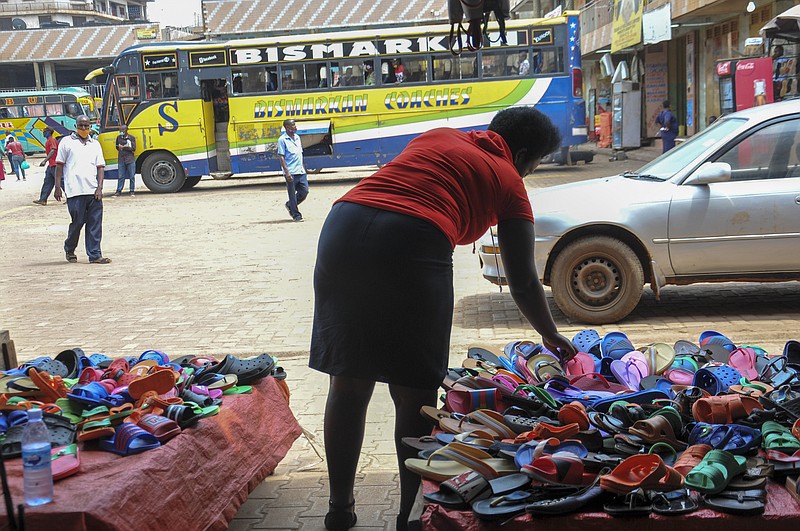KAMPALA, Uganda -- Rebecca Nakamanya rolls her eyes, dismissing a question about school fees. What really worries her is how to feed three children and a jobless partner on a daily wage of less than $3, minus transport to and from her job as a cook.
"We have not even started thinking about school fees," she says. "When we don't have what to eat? When the landlord is also waiting?"
In the usually bustling labyrinth of shops surrounding a bus terminal in Uganda's capital, Kampala, she and other women sit idle in their open-air restaurant, waiting for customers who rarely come.
They are fortunate to be working at all. Business has been so poor under coronavirus lockdown measures that their nearest rivals have shut down. Their restaurant remains open mainly because the landlord deferred rent payments, a rare gesture of goodwill.
The covid-19 pandemic means that millions of women in Africa and other developing regions could lose years of success in contributing to household incomes, asserting their independence and expanding financial inclusion.
Often they are paid at the end of each day, a hand-to-mouth existence that has consequences for the whole family when business is bleak. Now many are increasingly under pressure as they deplete their savings and landlords threaten eviction.
The impact of covid-19 "has the face of the women," especially in Africa, Bineta Diop, an African Union special envoy, told reporters this month.
Although lockdown measures have affected 81% of the global workforce, "women's economic and productive lives will be affected disproportionately and different than men," the United Nations said in April.
"Across the globe, women earn less, save less, hold less-secure jobs, are more likely to be employed in the informal sector. They have less access to social protections and are the majority of single-parent households. Their capacity to absorb economic shock is therefore less than that of men."
More than 70% of African women in nonagricultural jobs are employed in the informal sector such as street and market vending, work that requires no diplomas, resumes or formal approval. They don't pay taxes, but in difficult times that means they're not likely to benefit from government relief.
[CORONAVIRUS: Click here for our complete coverage » arkansasonline.com/coronavirus]
In Uganda, authorities say restrictions on close-contact businesses such as beauty salons are necessary to prevent a sharp rise in infections. Many men also work in the informal sector, but vehicle mechanics, metal fabricators, taxi operators and carpenters -- who are often men -- are now allowed to operate.
In a report this month the humanitarian group CARE said the pandemic has "a disproportionate impact on the very women entrepreneurs who have worked hard so hard to lift themselves out of poverty."
The international response to the pandemic "needs to include a strong focus on the economic justice and rights of women" to retain progress made over decades in gender equality, said Reintje van Haeringen, a CARE official.





